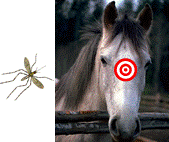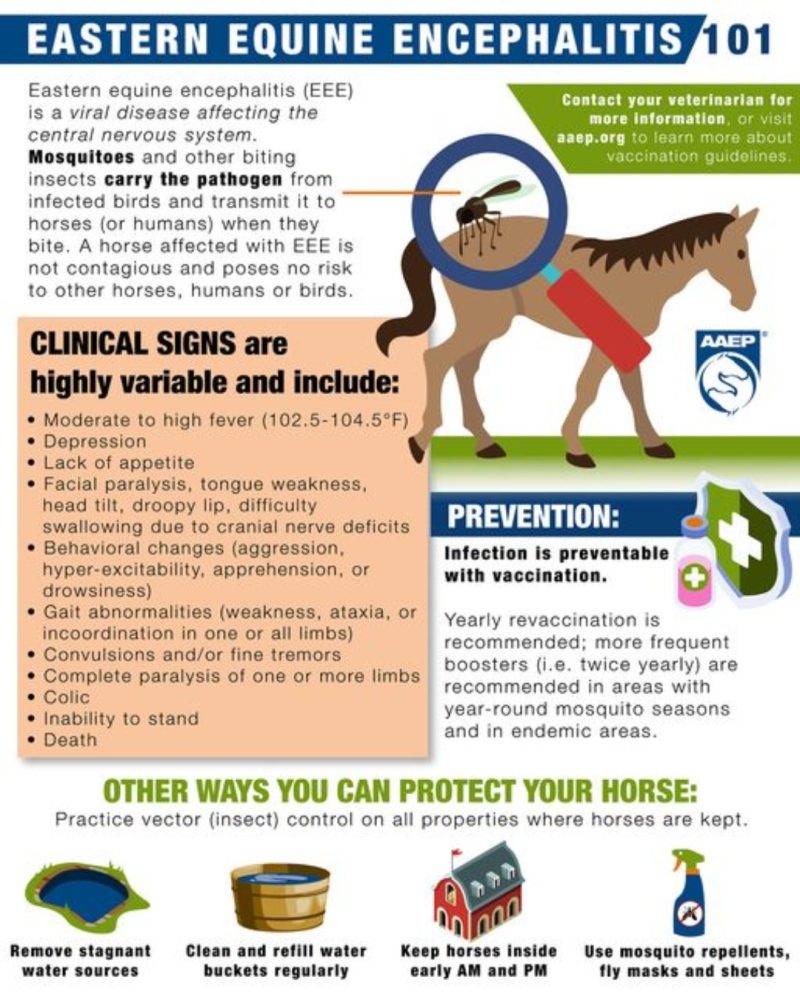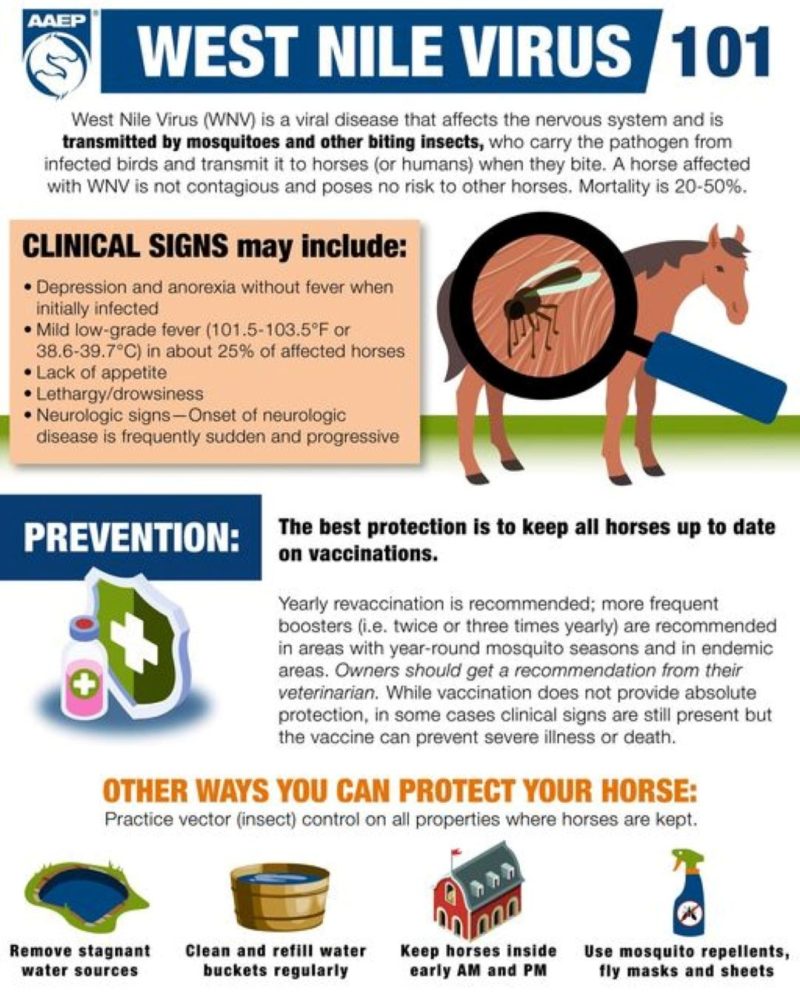 Florida’s year-round mosquito population poses a serious threat to equine health. Mosquito-borne viruses such as Eastern, Western, and Venezuelan Equine Encephalitis (EEE, WEE, VEE) and West Nile Virus (WNV) can cause severe neurological damage and high mortality rates in horses.
Florida’s year-round mosquito population poses a serious threat to equine health. Mosquito-borne viruses such as Eastern, Western, and Venezuelan Equine Encephalitis (EEE, WEE, VEE) and West Nile Virus (WNV) can cause severe neurological damage and high mortality rates in horses.
–
Recognizing the Symptoms
The encephalitis viruses cause inflammation of the brain (referred to as encephalitis). Symptoms include depression, difficulty walking, fever, staggering gait, and changes in behavior which include: profound depression, abnormal mental responses, and seizures. The effects to the nervous system can also include facial paralysis, tongue weakness, head tilt, droopy lip, aggression, hyper-excitability, apprehension, drowsiness, impaired vision, muscle twitches, circling, head pressing behaviors, inability to swallow, colic, paralysis and convulsions. According to the Center for Food & Public Health, EEE has a 90% mortality rate, WEE 50%, and WNV 33%. VEE is rare in the U.S. but vaccination is still advised due to cases in nearby Mexico.
WNV causes other neurological symptoms such as muscle tremors, loss of coordination, hypersensitivity to touch, and inability to stand up (recumbency). Additional signs of WNV include fever, incoordination, hind-end weakness, depression, anorexia, muscle tremors, teeth grinding, inability to swallow, head pressing, and excessive sweating.
–
Prevention & Control
To protect horses, implement the following vector control strategies:
- Eliminate stagnant water sources
- Clean and refill water buckets daily
- Stable horses during dawn and dusk
- Use equine-approved mosquito repellents
–
Vaccination Recommendations
Vaccination is the most effective defense. The American Association of Equine Practitioners (AAEP) recommends annual vaccines for tetanus, encephalomyelitis, rabies, and WNV. In high-risk areas, more frequent boosters may be necessary. Equine owners must work closely with their veterinarian to develop a proper vaccination protocol.
“Vaccination generally requires a primary series of 2–3 doses, followed by annual or semiannual booster doses. Routine vaccination is a critical component of developing a preventative health program for horses.” – Dr. Sally DeNotta, DVM.
Images Below Developed by American Association of Equine Practitioners (AAEP)
–
References
DeNotta, Sally, DVM, PhD, DACVIM 2023. Protecting Florida Horses through Vaccination: VM248, 01/2023.
The Center for Food Security & Public Health’s Fast Fact Equine Encephalitis. EWVE_F2008, rev 11/2009
AAEP. Eastern and Western Equine Encephalomyelitis Vaccination Guidelines, 04/2024.
- Small Farm Start Up School is Coming to the Panhandle – April 14 - January 16, 2026
- Winter Management Considerations for Horses - January 9, 2026
- Considerations for Horse Owners Responding to Recent EHV-1 Outbreak - November 21, 2025


